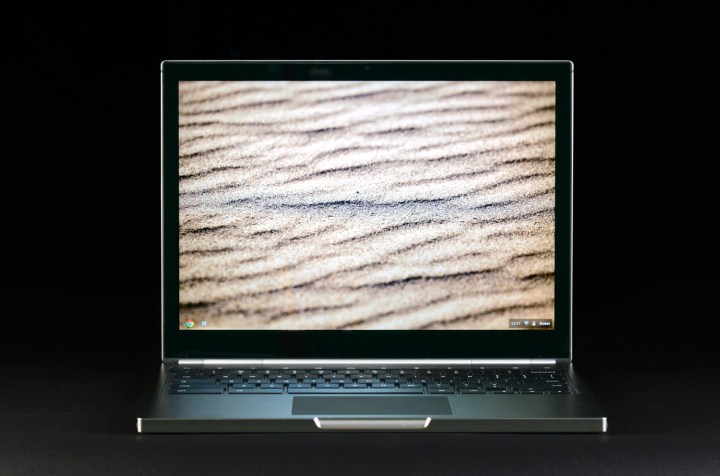
It seems Google will soon give the Pixel a refresh, however, as hinted by Google’s Renee Niemi at the company’s Team Work 2015 event. The announcement was not the focus of the event by any means, but merely mentioned in passing. Niemi said the Chromebook Pixel 2 is in the works, and that it will target developers just like its predecessor.
Related: Hands-on with Acer’s upcoming 15-inch Chromebook
What does that mean? Don’t expect a low price, for starters: the current Pixel 2 is $1,299, and it seems unlikely the replacement will be much (if at all) more affordable. It also goes without saying that the successor will also have a pixel dense touchscreen, though we doubt Google will increase the resolution. The current Pixel already slightly beats the MacBook Pro with Retina in the density department.
Leaks about the sequel’s board hardware suggest it will use a power-sipping Intel Core M chip. However, the leak also says the new Pixel will have two fans, which is confusing; Core M processors are usually fanless. The display size will stay the same, at 12.85 inches, and support for USB 3.1 Type-C is likely.
That’s all the information known for now. Some important details, such as a potential release date, remain entirely unknown. Chromebook fans will just have to wait for more, but if you’re planning a Pixel purchase, it’s a good idea to hold off until the new model appears.
Editors' Recommendations
- The most common Chromebook problems and how to fix them
- Google Chrome is getting a complete overhaul for its birthday
- Google just made a big change to how Chromebooks apps work
- I took my son shopping for his first school laptop. Here’s what surprised me
- This laptop completely changed my perception of Chromebooks

